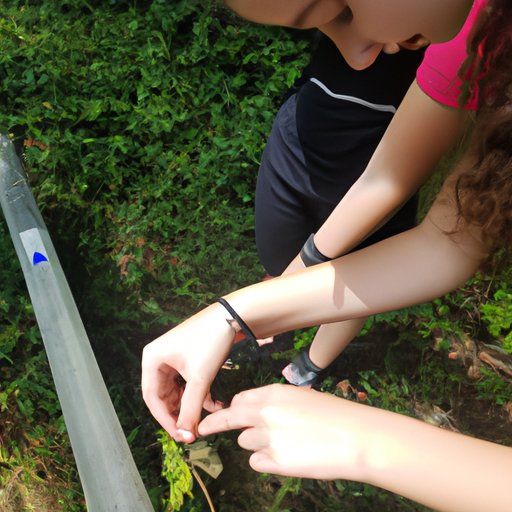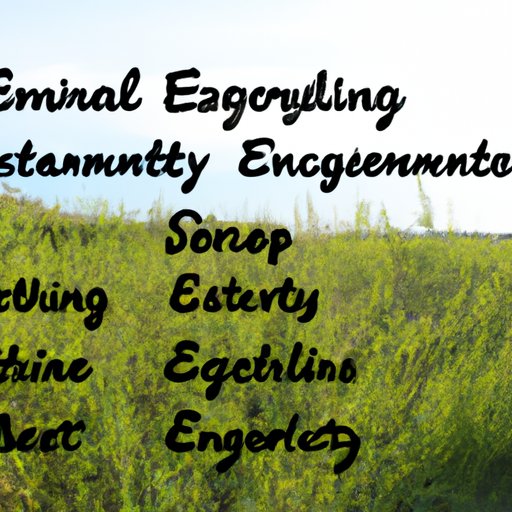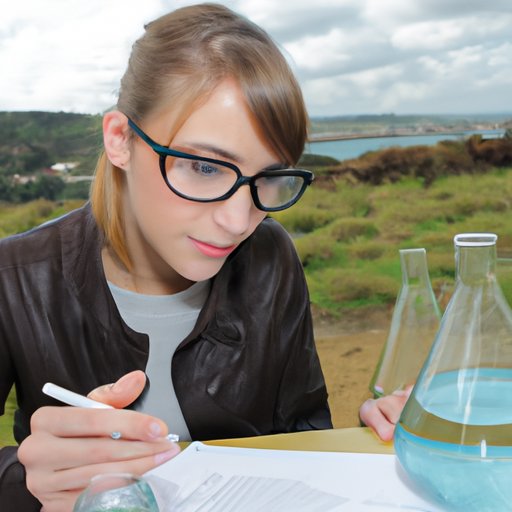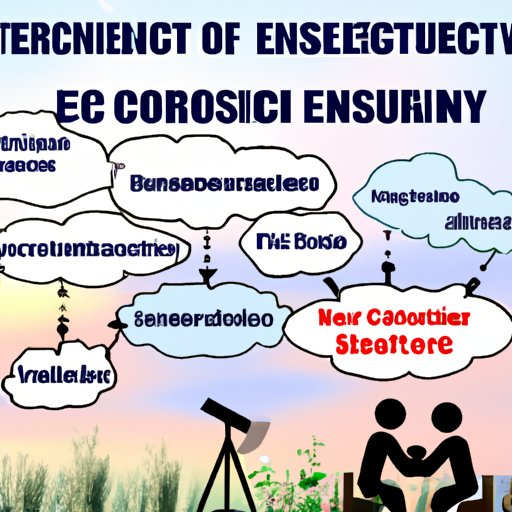Introduction
Environmental science is the study of the relationship between humans and the environment. It’s an interdisciplinary field that combines physical, biological, and chemical sciences to explore the effects of human activities on the planet. Environmental science courses are designed to teach students about the natural world and how it works. They cover a range of topics, from biology and chemistry to climate change and conservation.
Overview of Environmental Science Course: What It Is and Why It’s Important
Environmental science courses are designed to help students gain an understanding of the natural world and the impact humans have on it. Through these courses, students learn about the different components of the environment, such as air, water, soil, and plants, and how they interact with one another. They also learn about the effects of human activities on the environment, such as pollution, habitat destruction, and climate change. By studying environmental science, students can develop the skills and knowledge needed to protect and conserve the environment.

Exploring Different Areas of Environmental Science
Environmental science courses typically cover a range of topics, including biology, chemistry, ecology, geology, climate change, and human impact. They may also include topics related to conservation and sustainability. For example, students may learn about the importance of protecting biodiversity, reducing greenhouse gas emissions, and using renewable energy sources.

Benefits of Taking an Environmental Science Course
Taking an environmental science course can provide many benefits, both personally and professionally. Here are some of the key advantages of taking such a course:
Gaining a Deeper Understanding of the Environment
Through an environmental science course, students can gain a better understanding of the environment and its complexities. They can learn about the different components of the environment, such as air, water, and soil, and how they interact with each other. This can help them develop an appreciation for the planet and the intricate systems that make up our earth.
Learning about Regulations and Policies
Environmental science courses can also teach students about the regulations and policies related to the environment. They can learn about the different laws and regulations that exist to protect the environment, as well as how to effectively advocate for more sustainable practices. This can be especially beneficial for those who wish to pursue careers in environmental policy or advocacy.
Expanding Career Opportunities
Completing an environmental science course can open up a variety of career opportunities. Students may be able to find jobs in environmental consulting, environmental education, or environmental law. They may also be able to pursue research positions at universities or government agencies. These jobs can provide a rewarding and meaningful career path.

Preparing for an Environmental Science Course
Before enrolling in an environmental science course, there are a few things students should do to prepare. Here are some tips for getting ready for an environmental science course:
Finding the Right Program
The first step in preparing for an environmental science course is finding the right program. Students should look for a program that offers courses that meet their interests and goals. They should also consider factors such as cost, location, and length of the program.
Understanding Prerequisites
Students should also make sure they understand any prerequisites for the course. Some programs may require students to have taken certain classes or have a certain level of knowledge before enrolling. Knowing what is required ahead of time can help ensure students are prepared for the course.
Gathering Necessary Materials
Once students have found the right program and understand the prerequisites, they should start gathering the necessary materials for the course. This may include textbooks, lab equipment, or computer software. Having all the materials on hand can help ensure students are ready to start learning on day one.
Tips for Succeeding in an Environmental Science Course
Once enrolled in an environmental science course, there are a few tips students can use to help ensure success. Here are some ideas:
Staying Organized
Staying organized is essential for succeeding in an environmental science course. Students should create a schedule for completing assignments and studying for exams. They should also set aside a dedicated space for studying and keep their materials organized.
Developing Good Study Habits
Good study habits can go a long way when it comes to succeeding in an environmental science course. Students should set aside time for studying every day and establish a routine for reviewing notes and studying for exams. They should also make sure to get plenty of rest and eat healthy meals.
Utilizing Resources
Finally, students should take advantage of the resources available to them. Most environmental science courses offer access to online resources, such as textbooks, lecture notes, and study guides. Students should take full advantage of these resources to ensure they have all the information they need to succeed.
Career Opportunities After Completing an Environmental Science Course
Completing an environmental science course can open up a variety of career opportunities. Here are some common jobs for those with an environmental science degree:
Environmental Scientist
Environmental scientists study the natural environment and analyze data related to environmental issues. They may work for government agencies, universities, or private companies. Their work may involve conducting research, analyzing data, and developing solutions to environmental problems.
Environmental Consultant
Environmental consultants provide advice and guidance to clients on environmental topics, such as waste management, air quality, and water conservation. They may work for government agencies, non-profit organizations, or private companies.
Environmental Educator
Environmental educators work to educate people about environmental issues and promote sustainable practices. They may work for schools, non-profits, or private companies. Their work may involve creating educational materials, leading workshops, and developing outreach programs.
Review of Common Environmental Science Course Topics
Environmental science courses typically cover a range of topics, including:
Biology
Biology courses in environmental science focus on the study of living organisms, including plants, animals, and microorganisms. Students learn about the structure and function of different organisms, as well as how they interact with their environment.
Chemistry
Chemistry courses in environmental science focus on the study of chemical processes and reactions. Students learn about the properties of different substances, as well as how they interact with the environment.
Ecology
Ecology courses in environmental science focus on the study of ecosystems and how they function. Students learn about the different components of ecosystems, such as plants, animals, and microorganisms, and how they interact with each other. They also learn about the effects of human activities on ecosystems.
Geology
Geology courses in environmental science focus on the study of rocks, minerals, and other geological materials. Students learn about the formation of different geological features, as well as how they interact with the environment.
Climate Change
Climate change courses in environmental science focus on the causes and effects of global warming. Students learn about the different factors that contribute to climate change, such as greenhouse gas emissions, deforestation, and industrial activities. They also learn about strategies for mitigating climate change.
Human Impact
Human impact courses in environmental science focus on the effects of human activities on the environment. Students learn about the different types of pollution, such as air, water, and soil pollution, and how they affect the environment. They also learn about strategies for reducing human impact on the environment.
Conservation
Conservation courses in environmental science focus on the protection and preservation of natural resources. Students learn about the importance of biodiversity, as well as strategies for conserving and restoring habitats.
Conclusion
Environmental science courses provide students with an in-depth understanding of the environment and its complexities. They can teach students about the different components of the environment, such as air, water, and soil, and how they interact with each other. They can also teach students about the regulations and policies related to the environment, as well as strategies for protecting and conserving the environment. Taking an environmental science course can provide many personal and professional benefits, from gaining a deeper understanding of the environment to expanding career opportunities.
(Note: Is this article not meeting your expectations? Do you have knowledge or insights to share? Unlock new opportunities and expand your reach by joining our authors team. Click Registration to join us and share your expertise with our readers.)
